Our Members Asked:
I take levothyroxine (Synthroid), a thyroid hormone to treat hypothyroidism. Are there supplements or foods I should avoid, or be taking, due to this drug?
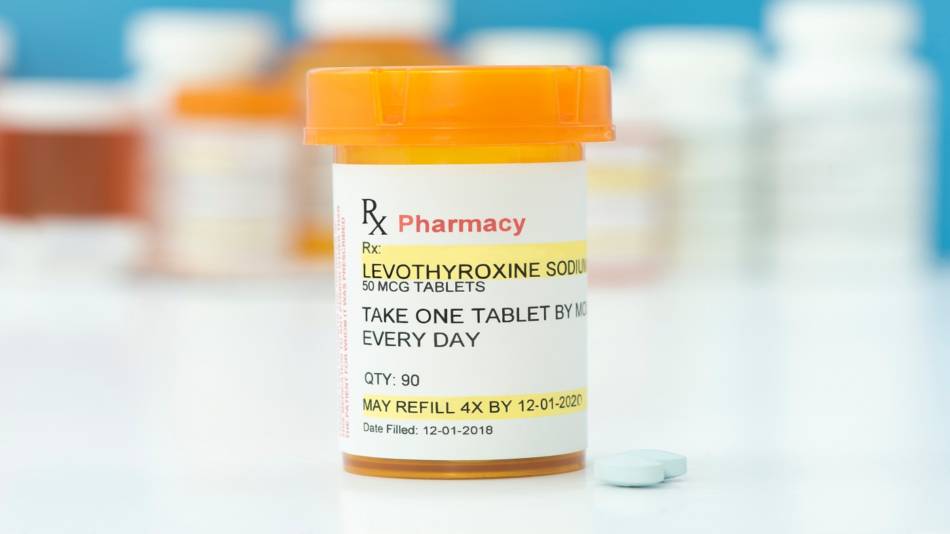
Answer:
Levothyroxine (Synthroid, Levoxyl), liothyronine (Cytomel), and other thyroid hormone drugs for hypothyroidism (underactive thyroid), can be affected by taking supplements and can affect your ability to absorb certain vitamins and minerals. Care must be taken with regard to using these supplements, for the reasons noted below.
Be aware that absorption of thyroid hormone drugs can also be affected by malabsorptive conditions like bariatric surgery, lactose intolerance, celiac disease, and inflammatory bowel disease. Treating hypothyroidism in people with these conditions may require a higher dose of thyroid hormone, but using liquid formulations or following a gluten-free diet (for celiac disease) may improve absorption and reduce the need for higher doses (Asamoah, Clin Case Rep 2021; Fallahi, Front Endocrinol (Lausanne) 2021).
Supplements that affect the absorption of thyroid hormone drugs
Calcium supplements can inhibit the absorption of levothyroxine, and for this reason, should be taken at least four hours after taking levothyroxine, or longer, if taking high doses of calcium (i.e., more than 500 mg). Certain levothyroxine formulations might reduce this effect (see below).
Similarly, iron supplements may interfere with absorption of levothyroxine. It's recommended to take iron supplements at least four hours apart from this drug.
Antacids containing aluminum hydroxide and magnesium hydroxide (such as Maalox), or laxatives containing magnesium oxide, should be taken at least four hours before or after taking levothyroxine, as they may delay or prevent the absorption of the drug by reducing gastric acidity (Synthroid Prescribing Information 2017; Mersebach, Pharmacol Toxicol 1999). Intake of other forms of magnesium should also be separated from levothyroxine by 2 to 4 hours, as the magnesium from these salts may bind to and reduce the absorption of levothyroxine (Vitic, Can Fam Physician 2023).
Liquid formulations of levothyroxine, or possibly softgels, might reduce this effect, but should still be taken apart from calcium, iron, and magnesium (Vita, Expert Opin Drug Deliv 2017).
Chromium picolinate may reduce the absorption of levothyroxine based on preliminary evidence in people, but clinical research is needed to confirm. Nevertheless, it may be prudent to consider taking chromium picolinate at least 4 hours apart from levothyroxine.
Soy (including soy protein powders and soy isoflavones -- found in some menopause supplements) can affect absorption of thyroid hormone drugs.
Taking vitamin C along with levothyroxine may increase the absorption of levothyroxine and reduce TSH levels. Although there is no recommendation to avoid vitamin C when taking levothyroxine, people on a stable dose of levothyroxine should talk to their doctor before starting to take vitamin C.
Vitamin D supplementation, alone or in addition to taking levothyroxine, may modestly decrease TSH and levels of certain thyroid antibodies, in people low blood levels of vitamin D. However, be aware that high-dose vitamin D may increase the risk of autoimmune thyroid disease in people who already have sufficient levels of vitamin D.
Supplements that affect thyroid function or levels of thyroid hormone
Alpha-lipoic acid may lower levels of thyroid hormone T3 and increase levels of TSH.
L-carnitine and acetyl-l-carnitine can inhibit the activity of thyroid hormones (and may actually help people with hyperthyroidism, or overactive thyroid).
There is some evidence that kelp supplements (such as tablets and capsules) can increase levels of TSH (thyroid-stimulating hormone).
Although often promoted for thyroid health, iodine supplements will not help your thyroid work better, and may even cause problems, unless you have an iodine deficiency.
Preliminary evidence suggests that ashwagandha may increase thyroid hormone levels, and so should be used with caution in people taking thyroid hormones, or people with hyperthyroidism.
Resveratrol has been shown to increase TSH levels and cause thyroid enlargement in animals, although it's not known whether it effects thyroid function in people.
Long term exposure to high or even moderate amounts of lithium can affect thyroid function.
Be aware that some thyroid-boosting supplements, including herbal supplements, have been found to contain thyroid hormones at significant levels, which are not listed and may be due to drug spiking. See the details in our Warnings section.
Supplements affected by thyroid hormone drugs
Levothyroxine may prevent the metabolism, and thus increase blood levels, of cannabidiol (CBD). Levothyroxine can inhibit cytochrome p450 enzyme CYP3A4, which metabolizes CBD in the body. A small study found that children taking CBD who were also taking levothyroxine had higher blood levels of CBD compared to those taking the same dose of CBD but without levothyroxine. Other experts have cautioned that, theoretically, co-administration of CBD and levothyroxine may increase blood levels and, consequently, the effects of levothyroxine, leading to symptoms of hyperthyroidism, although this interaction has not been reported in humans.
Supplements that affect thyroid hormone test
Be aware that high doses of biotin (as found in some B-complexes or supplements for hair and nails) may interfere with certain thyroid laboratory tests.
Foods that affect thyroid hormone absorption
Soybean flour, cottonseed meal, walnuts, and dietary fiber may bind and decrease the absorption of levothyroxine from the gastrointestinal tract.
Grapefruit juice may delay the absorption and reduce its bioavailability (Synthroid Prescribing Information 2017).
There is also some evidence that coffee may bind to and reduce the absorption of levothyroxine. Consequently, it may be best to wait one hour after taking this medication before drinking coffee (Benvenga, Thyroid 2008; American Thyroid Association). It is not known which compound/s in coffee are responsible for this effect. Therefore, it is possible (but not proven) that decaffeinated coffee may also reduce absorption (Wegrzyn, J Acad Nutr Diet 2016). [Note: A small, company-funded study suggests that absorption of a liquid oral formulation of levothyroxine (Thyquidity, VistaPharm, Inc. ) was not affected when taken 5 minutes after consuming 8 ounces of coffee (without cream or sugar), but this study does not appear to have been published in a peer-reviewed journal to-date, and prescribing information for the product currently states it should be taken on an empty stomach, although coffee is not listed under potential food interactions). In addition, these findings cannot be applied to the more common, tablet formulations of levothyroxine, such as Synthroid.]
Taking levothyroxine along with cow's milk, which contains calcium, can decrease the absorption of levothyroxine by about 8% (Chon, Thyroid 2018).
Green tea may also interfere with thyroid hormones, so it may be best to consume green tea, as well as green tea supplements, at least one hour apart from thyroid medication.
There is some evidence that coffee, milk and tea may have less effect on the absorption of liquid formulations of levothyroxine, or possibly softgels, than tablet forms (Liu, Ther Clin Risk Manag 2023; Cappelli, Case Rep Endocrnol 2020), although more research is needed to confirm.
Foods that affect the thyroid function
Cruciferous vegetables such as broccoli, brussels sprouts and cabbage contain compounds that can interfere with thyroid function. However, these compounds are typically found in only very small amounts in these vegetables, and they appear to be deactivated upon cooking (McMillan, Hum Toxicol 1986; Felker, Nutr Rev 2016). See our Answer about supplements and thyroid function for details.
Many reviews have investigated a possible association between fluoride exposure and thyroid dysfunction (including risk of hypothyroidism). However, best available evidence suggests that fluoride intake from drinking water does not have an adverse effect on the thyroid gland or its function. There is no evidence that fluoride intake from other sources such as toothpaste (which is less than the amount from drinking water) affects thyroid function.
When to take levothyroxine
Although it is often recommended that levothyroxine be taken on an empty stomach about 30 to 60 minutes before breakfast, and, as noted above, at least 60 minutes before drinking coffee, some people find it difficult to consistently take this medication in the morning. Interestingly, some studies have shown that taking levothyroxine in the evening can be just as effective in controlling hypothyroidism as taking it in the morning, and in some cases, may even improve absorption (Pang, Clin Endocrinol (Oxf)2020; Mello, Front Med (Lausanne) 2022), although people who wish to try this should still consult with their physician before making this change. The American Thyroid Association's guidelines state that levothyroxine can be taken at bedtime (at least 3 hours or more after the last meal) as an alternative to taking it in the morning, and that doing this can achieve optimal, consistent absorption.
Although some people have raised concerns that taking levothyroxine at night could cause or worsen insomnia, this does not appear to be reported as a side effect in clinical trials in which the drug is taken at night. In addition, insomnia associated with use of levothyroxine taken in the morning occurs primarily when taken at a higher dose than needed (Synthroid Prescribing Information 2017). It's also worth noting that hypothyroidism itself has been linked to difficulty sleeping in some (but not all) research, possibly due to symptoms such as muscle pain and cold intolerance interfering with sleep, and other clinical symptoms, such fatigue, often improve with treatment.
About generic versions of levothyroxine
The reason why it's particularly important to consider possible supplement interactions when taking thyroid medication is that it has a "narrow therapeutic index." This means that drug levels must be maintained within a relatively narrow range to be effective and not cause side effects. For this same reason, switching from a branded thyroid medication to a generic, or from one generic to another, can be problematic if the two drugs are not closely bioequivalent or are formulated differently -- causing one to release its active ingredient at a different rate than the other under certain circumstances, such as when taken with food or without food.
Due to historic concerns with generic versions of thyroid medication, the FDA tightened the bioequivalency requirements on generics in 2007. Nevertheless, many physicians have continued to prescribe the branded versions. In a study funded by the FDA to validate the equivalency of generic drugs, researchers reviewed the medical records of thousands of people newly started on generic (Mylan, Sandoz, or Lannett) or branded (primarily Synthroid or Levoxyl) levothyroxine for mild hypothyroidism between 2008 and 2017. They found similar attainment of normal thyroid status regardless of whether generic or brand-name medicine had been administered (Britto, JAMA Network Open 2020). While this is encouraging, it should be noted that the study did not evaluate the effects of switching from branded to generic (or generic to branded) products, nor did it include patients with moderate or severe hypothyroidism. In addition, there have been recalls of generic thyroid medication found to be subpotent or superpotent.
Join today to unlock all member benefits including full access to all CL Answers and over 1,400 reviews.
Join NowAlready a member? Sign In Here.
Join now at www.consumerlab.com/join/

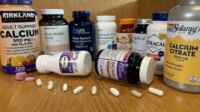

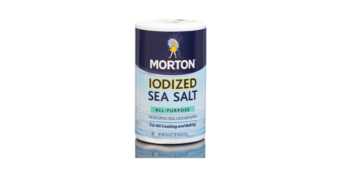





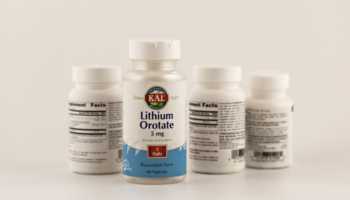







Joseph22260
March 15, 2025I take Generic Levothyroxine 50mcg ans Armour Thyroid 60mg I also take Alpha Lopoic Sustain 300mg, B12 all in morning. I take Chromium Picolnate, Zinc, Cal & Mag in late afternoon and night.
Reply to this post…
lisa21583
January 07, 2025Funny I also take it during the night when I wake up. Works for me.
Reply to this post…
Deborah19405
May 01, 2024I have been on thyroid meds for more than 50 years. The most recent years I've been taking Unithroid 175mcg daily. At first taken in the morning, but my blood levels fluctuated, leading my Endocrinologist to recommend that I take it in the evening. I found it hard to stick to a time, so I now take it during the night when I usually wake up. This works for me.
Deborah21199
November 26, 2024I have had hypothyroidism for over 50 years. And I also take Unithroid .125 mcg at night when I usually wake up between 2-5am. I started doing this over a year ago and my blood levels have been better.
Reply to this post…
Marina1220
November 11, 2023I have been taking SYNTHROID for many,many years. Always around 3 a.m.
It does not interfere with my sleep--- the only drawback is that, as a diabetic, I may need to raise my blood sugar around that time --- a box of apple juice. This results in taking SYNTHROID later.... closer to breakfast. Still, this is a minor inconvenience. My tests have always been satisfactory...
Reply to this post…
Jpip
July 02, 2023I have been taking 60mg of NP Thyroid in the morning and 50mcg of Levothyroxine at night. My Integrative medicine Doctor says my numbers have never looked so good.
Reply to this post…
Scott5
July 01, 2023My TSH levels have remained stable taking the generic over a period of years.
Reply to this post…
Mark1216
June 30, 2023Just to clarify - when you write "Synthroid... and other thyroid hormone drugs for hypothyroidism (underactive thyroid) can be affected" you are including Armour Thyroid in that group? Thanks!
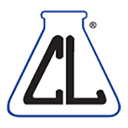 ConsumerLab.com
ConsumerLab.com
July 11, 2023Yes, since Armour Thyroid contains the thyroid hormones thyroxine (T4) and triiodothyronine (T3), it may interact with supplements similar to Synthroid (a synthetic form of T4), Cytomel (a synthetic form of T3), or other thyroid hormone drugs.
Reply to this post…
Esta1210
September 30, 2022I have been taking Levothyroxine since I had a thyroidectomy 43 years ago. I take my thyroid medication first thing every morning at least 1 hour before breakfast with a full glass of water. However, I do have coffee before eating breakfast. My doctor checks my thyroid levels every year during my annual checkup. My dosage has stayed the same all these years.
Reply to this post…
Lynn1203
September 20, 2022When I had a total thyroidectomy many years ago at Mt. Sinai Hospital in NY, by the chief on ENT, he made a point of telling me to always use Synthroid and to avoid any of the generics. I have followed his advice all these many years and will continue to do so.
Jane1206
June 30, 2023Good advice! I had issues with generic about 12 years ago. Hopefully Synthroid will stay dependable for us.
Glen1204
June 30, 2023I have a similar story but have recently switched to generic. I had a pituitary tumor 50 years ago and have been on the brand the entire time. Endocrinologists always told me to use the brand. After switching my doctor to one at weill cornel in ny she told me that in there had been a problem with generics not getting the dosing right but that has been corrected recently. I have not had any issues with it and it saves a lot of money
Marilyn19507
May 14, 2024I have taken brand Synthroid since 1971 and have always been stable
Reply to this post…
Harlan1194
August 12, 2022This is a recent study on levothyroxine: https://pubmed.ncbi.nlm.nih.gov/35226058/
Here are some of my concerns about their conclusions:
The authors of this article1 argue their analysis of users of just 3 -- Mylan (now Viatris), Sandoz, and Lannett -- out of the 14 or more levothyroxine tablet manufacturers during the study period, supports the current prescribing of generic levothyroxine. I believe their argument is flawed.
Sandoz no longer “manufactures” or distributes l-thyroxine. It most recently retailed l-thyroxine supplied by Cediprof (Neolpharma). Previously, MOVA manufactured its product. Lannett used to distribute Jerome Stevens Pharmaceuticals manufactured l-thyroxine but now distributes Cediprof’s version under its own name. The Mylan manufacturing plant in Morgantown, West Virginia, where its l-thyroxine manufacturing was considered impeccable, is now closed secondary to cost cutting. Mylan declines to say, for “confidential” reasons, whether it is now manufactured domestically or outsourced overseas (personal communication). To assert there should be no concerns about substituting one generic l-thyroxine for another based on just 2 of 12 current manufacturers, much less when there are significant changes affecting both of them, is unsupportable.
The authors argue that the use of generic levothyroxine is “reassuring.” Yet, as recently as 2021, the FDA required Acella to recall 38 lots of l-thyroxine secondary to subpotency. In 2020, the FDA required Acella to recall 13 lots of l-thyroxine for superpotency.2 In 2018, Westminster Pharmaceuticals was required to recall 38 lots of l-thyroxine.3 In both 2017 and 2014, Mylan recalled lots of l-thyroxine. In 2016, a forced switch of 350,000 Dutch patients off their brand name product resulted in 63% of those taking >100 mcg/day having abnormal TSH results.4
The generic pharmaceutical industry can be cutthroat despite price fixing allegations. Mylan, Sandoz, and Lannett have all been warned by the FDA in recent years over their manufacturing practices. There are regular reports, which are likely greatly underreported, of various deficiencies in other generic manufacturers.5 Without consistent sourcing, site manufacturing, and quality control no one can be assured that any generic is consistently bioequivalent, much less free of contaminants, either to itself or other generics.
Glenn1195
August 12, 2022I totally agree with it, based on my own personal experience of being on the inconsistent generic for years. Also keep in mind that if you use the normal mail-order 90-day type system, that the actual generic manufacturer will vary from refill to refill, which complicates getting consistent dosage.
Jane1198
September 20, 2022I also had issues with generic and as I am also on the 3 month mail order plan, I took an extremely high dose for 2 months! I cried at the drop of a hat, hair was falling out etc, Only when the mail order pharmacy sent me Synthroid (without my doctor changing the script,) did I realize the med was bad. Per doctor's order, I only get Synthroid now,
T Allen
February 07, 2023Do to the generic inconsistencies and availability issues with brand names over the last 3 decades, as well as allergies to the fillers they use (acacia), I have been paying extra to get my T3/T4 prescription made by a compounding pharmacy. The last 4 years of stability are well worth the price!
Reply to this post…
Rebecca1184
August 12, 2022Your mileage may vary, but for me, brand Levoxyl works best. It's the only brand that hasn't had recalls for impurities or problematic dosing. I had been on generics for many years, but began having wild swings in my TSH, and crazy symptoms (hair loss, nervousness, exhaustion, random and immediate allergic reactions to food, brain fog... the list went on). My wonderful husband scoured the web and discovered that every generic and even brand Synthroid had had recalls. I've been on Levoxyl for three years now, and my TSH has been stable the whole time. As an earlier poster noted, the brand name is worth the extra money.
As for natural forms of thyroid, like Armor: I personally know three people who've been rushed to the ER due to the crazy unstable dosing of those pills. I'm grateful I've never been advised to take it.
Ann Lee
September 20, 2022I've been on Armour for at least 10 years. I've never had an issue with it, and it maintains my levels very well. To each his own.
Karen1189
September 20, 2022I took Armour thyroid for 2 years and felt the best ever since being diagnosed with hypothyroidism. Because my functional doctor is better able to more precisely tweak the T3, T4 levels, I now have my thyroid med compounded. I am very happy with the results of my well-being on this over the last 2 years.
Mary1187
September 23, 2022Happy with Armour Thyroid for 20 years. Before that, had taken Synthroid for about 10 years. This year, my pharmacy gave me another porcine Rx with a name that sounded like Armour - but wasn't. It was disaster. Now I get the real Armour Thyroid from Express Scripts every 3 months and feel great again.
Margaret1191
September 25, 2022I’ve been on Armour thyroid for 66 years. My thyroid is effectively “non-functional”. An endocrinologist worked with me nearly 20 years ago to switch me to Synthroid - which I wanted to do for cost reasons. We could not find a dosage that was stable and the doctor concluded (after nearly a year of careful experimentation) that I need Armour. I have no financial interest in any of these products.
Deborah1192
September 29, 2022I too use compounded Armour Thyroid. My insurance doesn’t pay for it but I do
because I had to switch to synthroid when the pharmaceutical companies were trying to close compound pharmacies. I was a mess. Thankfully I was able to get back on Armour. It’s what works best for me.
Louisa1188
September 30, 2022Switched from 2 porcine brands of thyroid RX to Tirosint. Best thing I ever did. Consistent levels and no more ups and downs. I also take T3 with the Tirosint.
Ariella1190
September 30, 2022I took armour thyroid, and now NP thyroid, for over 20 years. Both have been excellent and always reliable in dosing.
Mary1185
June 30, 2023I swelled up from natural thyroid and have done great with Levoxyl.
Reply to this post…
Kathleen1179
January 04, 2022Have been on Synthroid for 42 years after a complete thyroidectomy at age 22! Tried the generic form once and had reactions, went back to the Synthroid. It is worth the extra cost.
Marie1181
September 20, 2022I have had the same experience except lost 2/3 of my thyroid and it's been 56 years. Still on Synthroid.
Reply to this post…
John1172
February 15, 2021I take (Triosint) it is a pure form levothyroxin. Triosint is made in Switzerland and has no additives. It is expensive my insurance company keeps threatening to put me on generic drug. I also use Armour which has been a life saver, as it gave me more energy. I take my medication when I usually get up to use the bathroom about 3 am. It is important to take it at least an hour before I eat. Calcium infers with the defectiveness of these drugs. I hope this helps someone.
Pam
June 28, 2022I hear you John....Tirosint IS expensive, but definitely worth it. My insurance won't pay for it at all, so it's all out of pocket. I am able to get 3 boxes of Tirosint via a specialty pharmacy back east (mail order). My doc switched me to Tirosint after a very bad experience (post-radioactive iodine ablation of my thyroid) treated initially with regular Synthroid. I had an inflammatory reaction to the medication, which I hear is not that unusual, and, thankfully, things calmed down almost immediately when he started me on Tirosint. I highly recommend this as well.
Suzan1173
October 01, 2022What is the pharmacy please?
Amber1176
March 12, 2023I also take Tirosint after post Radioiodine therapy. I couldn't tolerate the generic brands at all. Tirosint was the only brand that has kept my TSH levels stable. I take it in the morning and I drink coffee shortly after with no issues.
Louisa1174
June 30, 2023Go to the Tirosint website and they have info on the Tirosint direct suppliers. https://tirosint.com/
Your doctor sends your Rx directly to one of these pharmacies and I pay $150/ 3 month supply. My sister gets it at Sam’s for $95/ 3 month supply. I like this one and take it with supplemental T3 since I don’t convert the T4 (Tirosint) as well as I should.
Reply to this post…
Anna1169
October 26, 2020What the study did not look at, and which is major new issue with generics, are the inactive ingredients, which not only can differ from one manufacturer of generics to another but also from generics to the brand. Some inactive ingredients could have problematic side effects. There was a first major study of these published within the past year, which caused the FDA to convene a panel to look into the issue. The. COVID hit. There was a second study on possible toxicity published a few month ago.
I know that I cannot take generic versions of many meds where I can take brands or authorized generics. I would suggest that people pay close attention to this emerging issue if they’re considering switching from a brand.
Reply to this post…
Rebecca1167
October 25, 2020Thank you for this information, which I follow when taking supplements. Of course I always check ConsumerLab.com before buying and taking any supplement.
A note about generic levothyroxine: 30 years ago I was started on Synthroid, then with an insurance change was moved to a generic levothyroxine. About a decade ago, I started having odd food reactions (hives after eating say, organic romaine lettuce, which had been harmless to me the prior day). Thanks to a clever allergist, it was determined that I was being overmedicated by the generic levothyroxine (my TSH was well below normal) - despite there being no change in my supplements, dosage, diet, weight, etc. It was causing me to react to food the oxidation of food that wasn't absolutely fresh, even a day after purchase of fresh foods, or opening a jar or bottle of prepared foods. I'm ever grateful to him.
Fast forward to a couple of years ago, and I had an actual thyroid episode, again the result in overmedication, despite my generic levothyroxine dose having been lowered, and lowered and lowered. Grasping at straws, I asked my doctor to put me on the more expensive Synthroid brand, and have had zero incidents since then. My heart doesn't feel as if it's going to beat out of chest, I don't have the shakes and the flop sweats, etc.
Some sleuthing by my husband resulted in the discovery that *every single manufacturer of the generics I had been on had had recalls, recalls and more recalls because of inaccurate levothyroxine dosing.* As the one taking the medication, was I ever notified? No. In fact, when presented with this information the online pharmacy shrugged it off, and continue to use these manufacturers despite their terrible practices.
Your mileage may vary, but no more generics for me.
Jane1168
August 26, 2021I had a similar issue. I was on generic levo for years with no problem. Suddenly, I was a mess. Crying for no reason, hair falling out etc. I did not even suspect the generic drug (it was the only prescription I was taking) until Express Scripts started to send me the brand Synthroid instead of the generic, We all know how hard it is to get brand name meds covered by insurance, especially when my doctor nor I had ever asked, Sure enough, I found an article that levo being sent from Pakistan to the east coast had way too much medicine in it. Express scripts began sending me the generic again after 3 months, but I refused to take it again. I bought Synthroid myself without insurance, but it became very expensive. My doctor finally wrote a script for the brand Synthroid and that I was not to get the generic. She dated the order until 2099! She must have great faith in her ability to keep me alive till then. No problems since then.
Reply to this post…
Glenn1165
October 25, 2020Regarding CL's latest 10/2020 comment about switching from generic to branded and vice versa, it's worth noting that a big risk of taking the generic is that many insurance plans require patients to fill prescriptions via 90-day mail orders, and mail-order pharmacies routinely change the sources of their generic drugs. Reading into the CL comment, this means that your dose of thyroid medication could vary from one refill to another. This risk is another reason to seek out the branded versions.
Reply to this post…
Glenn1161
February 26, 2020This is an older CL post but I thought I'd share my experience regarding Nature Throid. Within the last decade, I switched from Levothyroixine to Nature Throid and although I seemed to feel better and had fewer hypo symptoms, those years when I was on Nature Throid, my TSH/T3 and T4 numbers were not stable. It seemed that each year or every other year, I had to have my Nature Throid dose adjusted.
What greatly interested me, however, was the fact that the Nature Throid is not part of the Medicare Part D formulary because it is not considered the standard treatment for hypothyroidism. When I research this issue, I find that the company producing it and similar desiccated thyroid products refuse to submit their products to testing to get properly approved by FDA. Why is that? I believe, based on my own experience, that the desiccated products are inconsistent in their levels of thyroid hormones, which is why the producers avoid getting them formally tested and approved.
After several years of using Nature Throid, I switched to Synthroid (NOT the generic of it) and I feel so much better. My eyebrows have grown in thicker too (which I've never had happen in years of using Nature Throid or Levothyroixine). It's my belief it's because the Synthroid is stable in its dosage and this has been more beneficial to me than getting scattershot amounts of T4 and other hormones in the Nature Throid.
This is my personal belief and experience but it would be insightful to have someone like CL look into the back story of the desiccated hormones and whether the true dosage varies from lot to lot.
Reply to this post…
Virginia1159
January 08, 2020My neurologist prescribed R-lipoid acid under the Doctor's Best label. Would it interfere with levithyroxine as well?
 ConsumerLab.com
ConsumerLab.com
January 13, 2020Hi Virginia - Unfortunately there does not appear to by an research on R-lipoic acid and levothyroxine.
Reply to this post…
Rattattat
January 31, 2019I took Synthroid for over 20 years and felt terrible the whole time. I could not get a doctor to prescribe the natural thyroid. I finally found a doctor a year ago that prescribed Armour Thyroid and the change has been amazing.
I lost weight, my brain works again, I have energy and my hair is growing back. Please look around until you find a doctor that listens. It will save your life.
Karen1157
July 05, 2020I, too, switched to Armour Thyroid 2 years ago. I couldn’t be happier. There has been one small increase during this time period. I feel great. Unfortunately my insurance will not pay for it, so it is “out of pocket” with the store’s discount. Still worth it as same insurance wouldn’t pay for trademark Synthroid, only generic. THAT was not acceptable to me. The AT has both T3 and T4. I previously also had to take generic Cytomel. Again not acceptable..
Reply to this post…
Robert1153
December 29, 2018For many years the only thyroid medication I have taken is Nature-Throid. I take it first thing in the morning and as a sublingual for better controlled absorption. As I aged regular testing provided need for gradual small increases in dosage and at age 80 it is still doing a great job of keeping me active and feeling good. And yes, 35 years ago I had to push hard to get my MD at the time to even do the tests, let alone get him to prescribe some weird natural medication that my research had shown was the best way to go. My wife has also taken N-T for many years and it continues to work great for her also. Just get good thyroid testing with an informed interpretation. My doses work to keep TSH at about 0.9 for best results.
Merrill1154
January 03, 2019I found this post very informative since I used to take Nature-Throid as well, and found that my thyroid tests showed better results. I also had to really push to have the proper tests done and to get the Nature-Throid prescribed. Within the last year, my local small town pharmacy has informed me they can no longer get it. I thought that was because it was no longer available, but after seeing these posts, I will definitely begin calling other pharmacies to see if I can get it elsewhere. Thanks for posting on this subject!
Reply to this post…
Margaret1152
September 23, 2017When I was on prescription lithium some years ago, my thyroid medication dosage had to be increased. When that was discontinued, my thyroid medication needed to be decreased.
Reply to this post…
Virginia1149
September 18, 2017I have used Ashwaghanda & bladderwrack for a year & my blood tests reveal a normal thyroid
Karen1150
October 03, 2017That's great to hear. My experience with those two supplements have also been really positive--more stamina and energy.
Gaks
July 06, 2020Hi Karen and Virginia, did either supplement affect your FT4 or FT3 levels in bloodwork (in either direction), and does that appear to be permanent or temporary? Thanks!
Reply to this post…
Mike1141
September 13, 2017Some patients on synthetic thyroid medications who are not doing so well on them, might consider Nature-throid or Armour thyroid, which is made from dessicated pig thyroid, contains several hormones, not just T4. Some patients do much better on this medication, and it's much cheaper, too.
But most doctors have to be pushed to prescribe it, and some do not know the conversion dose when changing from synthetic to the natural hormone.
Karen1145
September 20, 2017I was on 88 meg of levoyhyroxin for several years. Blood work every 6 months revealed a decrease in T-3 and reverse T-3. I have been on 60 (mcg?) of Armour Thyroid for 60 days and feel SO much better. Coincidently, I have lost 7 lbs and 2.5% body fat without ANY CHANGE in diet or exercise. Blood work is scheduled in November so I will be interested to see new results.
Mary1146
December 04, 2017I’m newly diagnosed and on 100mg of synthetic thyroid meds. Would love hear more about your progress. Good Luck
Jeffrey1147
March 22, 2019T3 down and rT3 down? U sure.
Sylvia1148
June 16, 2019Karen, can you give us an update?
MaryJo1144
January 07, 2018From much research and according to my naturalpathic doctor, Armour or Naturthroid is the better and healthier choice for thyroid help. It is my understanding that many experience side effects or little help on Synthroid, etc. I take 120 mg. Armour first thing in the morning, but often follow with coffee soon after. So I appreciated hearing the comments on holding off on coffee until later.
ruth1142
September 09, 2018i am one of those people for whom Armour worked much better than synthroid
ruth1143
March 25, 2022I am also one of those people who do better on armor but my Iinsurance won’t payforit since they jacked the price up so high.
Reply to this post…
Marina1138
September 13, 2017Because of extreme fatigue (I am diabetic) my endocrinologist increased my dosage of Synthroid. It did not help the condition, but caused palpitations. Thyroid tests alerted me -- and research indicated the dosage was responsible. I asked the doctor to lower my Synthroid to a previous level, and the palpitations ceased.
Several posts here speak of PALPITATIONS. I suggest they evaluate their Synthroid dosage. Can't hurt!
Margaret1139
June 30, 2023I got heart palpitations once while out of the country. I did some research and found that it could relate to my Synthroid dosage.
Reply to this post…
Dorothy1128
April 16, 2017I recently spent six weeks in a rehabilitation facility. The nurse came around at 5:00 a.m. to administer Synthroid on an empty stomach. She came back at 7:00 with my meds for high blood pressure. I decided a two-hour separation between the two types of drugs is a good idea; it allows the thyroid hormone time to be fully absorbed in an empty stomach and get into the bloodstream. Back at home, I wake up several times during the night to go to the bathroom. If it's near 5:00 a.m. or shortly thereafter, I take Synthroid. Occasionally, I oversleep and take it much later. But I always wait two hours before taking my other meds and eating breakfast. Sometimes, I have a cup of coffee between 5:00 and 7:00, but I seem to have palpitations if I drink coffee a long time before eating food or taking blood pressure meds.
Jane1130
June 11, 2019Coffee or tea can interfere with thyroid med absorption. I was told to wait at least an hour after taking it before I have tea,
 ConsumerLab.com
ConsumerLab.com
June 11, 2019Thank you Jane, we've noted this in the Answer above. You can find more information about green tea and it's effect on thyroid hormones in the "Concerns and Cautions" section of the Green Tea Review https://www.consumerlab.com/reviews/green-tea-review-matcha-supplements-and-bottled/green-tea/#thyroid.
ruth1129
January 09, 2020My friend used to take her synthroid and then have coffee
Her hair started falling out
Doctor told her It was from the coffee
Must wait at least one hour between taking synthroid and coffee or anything for that matter
Her hair came back after changing her routine
Carolyn1134
September 25, 2022I am up to use the bathroom two or three times a night. I set out my pill and water before bed. Any trip 5 am or later is when I take my thyroid pill. I usually get up about 7:30 and no problem about breakfast or coffee.
Patricia1132
July 01, 2023That sounds good to me, I'm going to join you tomorrow morning since I do the same. Thank you for your helpful comment.
Sharla1135
July 02, 2023I always put my Synthroid out the night before , so it’s easy to find at 4AM. I usually wake up then for a bathroom break, then have breakfast about 8. Just my personal experience
Reply to this post…
Elizabeth1125
February 12, 2017I take Synthroid and need to discuss, with my endocrinologist, the time to take it. I get up at night to go to the bathroom, and was taking my Synthroid then. But I then got palpitations about four hours later. So I changed the time to take it, to after I got up. That stopped the palpitations, but I do like my morning coffee, so it's hard to wait an hour before coffee. And I'm not sure that's even enough time.
Reply to this post…
Diane1122
February 12, 2017I take Synthroid and I am considering switching to a night dose. To take on an empty stomach, how much time is actually needed to wait after the last meal? I have heard several different times: 2 hours, 4 hours, 5 hours. ConsumerLab what is the standard?
 ConsumerLab.com
ConsumerLab.com
February 12, 2017Food has typically cleared the stomach within 2 to 3 hours.
Virginia1123
July 26, 2017My understanding is that one should take Synthroid in the morning on an empty stomach, at least 1 hour before food is introduced. My endocrinologist explained that the natural hormone it replaces begins about 4 A.M. as part of the circadian rhythm. So, we should try to mimic as closely as we can the body's natural rhythms. Taking it at night would be inferior to taking it in the morning. I suggest talking this over with your endocrinologist before you make this change.
Reply to this post…
Rebecca1114
October 02, 2016After decades of stability, for the past few years, my thyroid tests have been up and down. varying up and down by about 25 mcg. Of course it was affecting how I felt as well, which was the worst part. I was having palpitations at night, and went from feeling manic to exhausted.
As it happened, I came across the following article about coffee interfering with thyroid medicine:
http://www.empr.com/case-studies/coffee-likely-culprit-in-patient-with-uncontrolled-hypothyroidism/article/494359/
After consulting with my doctor, I stopped taking the thyroid supplement in the morning with my coffee, and began taking it just before bedtime. Lo and behold, my thyroid needs went down, and I'm back to being at a stable dose of 150 mcg.
Good luck, and I hope this is helpful to others.
 ConsumerLab.com
ConsumerLab.com
October 03, 2016Thank you for making this point and sharing your experience with this, Rebecca. There is evidence that coffee can interfere with absorption of L-thyroxine (T4) (https://www.ncbi.nlm.nih.gov/pubmed/18341376).
G1115
January 25, 2017Per my endocrinologist told me from the beginning that thyroid meds are to be taken first thing in the morning on an empty stomach, with water only. Then you must wait an hour before ingesting anything else such as other meds, supplements coffee and food. This hour is to give the thyroid meds time to fully absorb whereas these other things would interfere with proper absorption. After the hour you can take your other meds, supplements, coffee and food. An Endocrinologist will confirm this.
By the time I get to work an hour has passed and I can take my blood pressure meds and coffee, etc.
Kudos if you can take it at night but, if you do, you must make sure you have not had anything but water for several hours prior which is basically fasting. So, it seems like less of a hassle to wait until morning because you fast as you sleep. Peace and love.
Kim1116
July 26, 2017A few years ago I read a study (by endrocrinologists) that showed taking Synthroid before bed resulted in better absorption. So I suggested to my mom that she switch, then she wouldn't have to wait for her morning coffee. Shortly after, she commented that she overall felt better taking it at night, and her lab work stabilized. The study didn't include Armour Thyroid, which is what I take, but I also switched to a bed time dose, because I'm a teacher (I can't wait an hour to get to work to eat breakfast and have coffee).
Joyce1117
September 10, 2017I have found it simplified my routine to take my supplements in the morning with breakfast and thyroid medication right before bed (I refrain from late eating). It does not give me any sleeping problems.
Gaks
July 06, 2020i have heard many people state they feel better taking levothyroxine at night. i think each person has to figure out what is best for them.
Anonanon
January 25, 2017I take my thyroid med immediatly upon wakening. I take about 1/2 hr getting showered, dressed etc & somwtimes longer if I go for a walk. I avoid calcium & mineral supplents until lunch time. I consistently have coffee or caffeinated tea with milk or cream with a small 'bite'. My MD says to do what I want, consistently, and he would adjust to the medication to get the right result. I've done this since starting levo in 2010. Now, my TSH remains stable ...usually between .5-1.0.However, my TSH levels were more solidly stable (more narrow range) once I switched to Tiroscint. I had stomach symptoms with dye free levothyroxine where with the Tiroscint I did not. I question if there is a relationship between fillers and absorption. As mentioned, I, too, become sleepless or sleep terribly if I take it before bed.
Reply to this post…
ann1106
January 13, 2016I take Alpha Lipoic Acid for blood sugar and neuropathy and also Levothyroxin for Hashimotos Thyroiditis.
I make sure my vitamins and supps are taken by noon. Levo is taken on an empty stomach before I go to bed- an hour or more after eating.
There should be no interference and from my thyroid lab results, no problem at all. Be sure to take your Thyroid med on it's own and way after food etc is absorbed and processed,
X-tine1107
January 15, 2016Many people, including my mother, experience insomnia when thyroid hormones--such as Levothyroxine--are taken at night before bed. In my mother's case, she found it helpful to take Levothyroxine immediately upon waking. To avoid any interference with thyroid hormone absorption, she takes nutritional supplements at least 4 hours later with lunch and dinner.
Barbara1111
February 23, 2016Does Alpha Lipoic Acid help with peripheral neuropathy? I also am pre diabetic.
 ConsumerLab.com
ConsumerLab.com
February 23, 2016Hi Barbara - There is some evidence it may be helpful. See the "What It Does" section of the Alpha Lipoic Acid Supplements Review ( https://www.consumerlab.com/reviews/alpha-lipoic-acid-supplements/alphalipoic/#whatitdoes) and this CL Answer ( https://www.consumerlab.com/answers/do-any-supplements-help-with-nerve-pain/nerve-pain-supplements/ for more information.
Marilyn1113
February 08, 2017My heart doctor recommended alpha liopic acid for neurophy with my diabetics 2 and it helped me.
Deborah1108
February 12, 2017I added ALA to my regimen for neuropathy. Then my neurologist suggested CoQ-10; I am up to 200 mg twice daily. I cannot tolerate gabapentin or Lyrica. These two plus Deplin [methylfolate/active form of folic acid] do help but I am still opiate dependent. I also lack the MTHFR gene which has an essential enzyme for the conversion of B9 to a usable form. I take brand Synthroid. And prednisone. Because my sleep and eating patterns are all over the map, as was my TSH, we decided I would take my Synthroid with everything else I take in the AM because I usually eat at bedtime. That includes minerals, coffee, etc. But it works to keep TSH between .8 and 1.8. The less prednisone I am on the more Synthroid I need as it suppresses the antibodies at higher doses. Crazy dose now of 25 mcg 4x a week and 1/2 tab on Wednesday. Oy. It is a balancing act for sure.
Gaks
July 06, 2020have you considered taking in the middle of the night? i take about half of my daily T3 dose along with my full T4 dose in the middle of the night, and even as someone with very persistent sleep issues, it has relatively painlessly become a habit and i’m able to fall back asleep quickly after downing the meds. may help to stabilize you much better.
Reply to this post…
Jason1101
August 25, 2014If you follow the citation link regarding aLA and thyroid (single study done in Germany, 1991), only the abstract is available on PubMed. It does not mention the number of patients involved but does describe that aLA was given with T4. It is not clear if these were hypothyroid patients or "normals". If these were normal people, then decreasing the conversion of extra exogenous T4 to T3 may be a good thing.
Unfortunately, as with a lot of the reported benefits of supplements, there is a lot of maybes and mights with potential side effects as well.
Hopefully the FDA will one day get more involved and demand higher quality studies.
Ann1103
February 12, 2017FDA wish they could get involved. When Congress evaluated whether FDA should regulate "nutritional" supplements, they decided nutritional supplements are probably safe and do not need to be regulated. Hence all of the problems with what's on the market today.
Reply to this post…
Rich1086
August 06, 2014The comments herein about alpha lipoic acid and acetyl L-carnitine indicate they are a hindrance, yet for a number of years they have been touted as wonderful supplements. I'm searching for the truth. Much of what I read about various supplements is contradictory from time to time.
Claudia1088
January 25, 2017I find that for everything said to be wonderful to eat or take, someone else seems to say it is bad or harmful for some other other condition. It's confusing at best. My method is to make myself an experiment of one and see how it works for me. Others may get a totally different result.
Max1087
October 25, 2020Yeah, listen to your body. You are the best judge of what works or not for you.
Reply to this post…